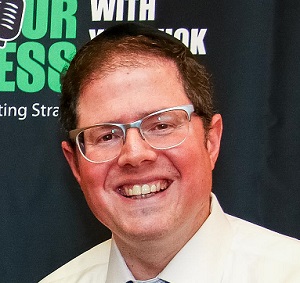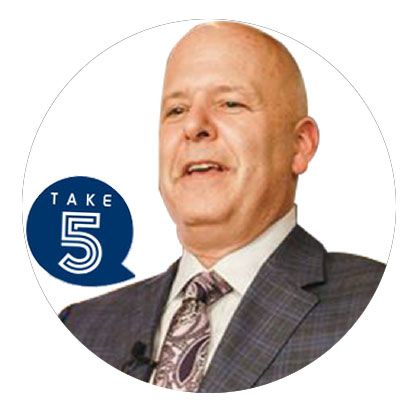Take 5: Best Buy Founder Dick Schulze


With Yitzchok Saftlas
About the Expert:
Founder and former CEO of Best Buy, Dick Schulze now serves as its chairman emeritus. Best Buy, which sells everything electronic from computers, software, and appliances to digital cameras, media equipment, and music, has about 1,500 locations and 125,000 employees.
1.Going the extra mile to serve the customer pays off.
Even early in life, Dick Schulze was an entrepreneur.
“I started delivering papers when I was 11. I delivered a morning, evening, and Sunday paper for the St. Paul Dispatch and Pioneer Press. And I learned an awful lot about what it takes to influence people to gain a benefit.”
For example, he realized it was very lucrative to provide bike-to-door service. During the holiday season one year when he was 15, Schulze decided to actually place the papers in the doorways of his customers. “That achieved tips for me that were three times my normal pay for the month,” he recalls — such a significant sum that he was able to buy his first car.
2.Don’t be afraid to expand your product offerings to meet customer needs.
In 1966, Schulze and a partner opened an electronics store specializing in stereos called Sound of Music. “We pursued all that we could with Sound of Music for about 15 years,” he explains.
At that point, they realized their customer base was changing. “More and more of the customers we served — primarily 18- to 25-year-old young males who loved music, loved it clear, loved it clean, loved it loud — they ultimately got married… started a family, and the need for more diversified products in their households became the hue and cry.”
An honest look at their inventory showed Schulze how narrow his focus was. He decided to branch out — starting to carry appliances, digital cameras, and computers, for example — which meant he needed a larger store and a totally different brand.
“So Best Buy was born,” Schulze says. Even the generic-sounding name was a calculated decision. “I didn’t want to get trapped into any one particular product category. I wanted to be able to diversify and add any and all kinds of products that connected well together.”
3. It is possible to survive — even thrive — in retail today by focusing on the value you bring to the customer.
In an era when many brick-and-mortar corporations are losing money to online giants like Amazon, Best Buy is well known for leveraging both brick-and-mortar and online commerce. “It’s been an evolution of our need to move even more aggressively to where the customers are,” Schulze explains.
While Best Buy was enjoying success with the products and services offered in their retail stores, Schulze and his team were not oblivious to the benefits of online shopping for, say, a new computer or refrigerator. “The Internet, online shopping, became a much more convenient way people could access what was important to them instead of having to devote countless hours or lengthy trips to investigate.
Best Buy “scrambled,” Schulze describes, to mirror the touch-and-feel shopping experience in their stores with their website, to offer that same value in a more convenient way. They streamlined the web experience for consumers so they could access specs, comparisons, and much more detail on what they were looking for, quickly and effectively.
“Now we are actively engaged in both segments of market,” Schulze states, “with 85 percent of our business from retail stores, and about 15 percent online. The online piece is growing double digits each month.”
4.Support other entrepreneurs in whatever way you can.
Schulze believes that prosperity comes along with a responsibility to pay it forward.
“I feel strongly that where success has provided much for someone, much is expected,” he declares. “Because entrepreneurship is such an important ingredient for the nation’s economy, anything I can do… to help young people be successful in pursuing their dreams… serves our country to the highest order.”
To that end, he introduced the Schulze School of Entrepreneurship at the University of St. Thomas. There, students not only learn business principles, but also how to build relationships, network, and find mentors who can use their own experience to guide the students. Schulze took it one step further with the Schulze Entrepreneurial Challenge, in which students from colleges and universities around the country develop their own businesses and compete for significant cash prizes. This year’s challenge saw 110 schools competing.
5.Seek out mentors and partnerships, especially when just starting out.
One key piece of advice Schulze shares for young entrepreneurs is not to go at it alone.
“Nobody can get here by themselves,” he maintains. “You really need to build partnerships, build networks, engage people who are doing similar things to what you’re doing.”
This is one of the strengths of his Entrepreneurial Challenge. It helps young adults who have a great idea develop it into a viable, prize-winning business, with the help of faculty advisors and mentors who are themselves entrepreneurs. This year’s winner, ExpressionMed, developed extended-durability patches for insulin pumps and Dexcom tapes for medical devices. What impressed Schulze about their team was how these young university students partnered with big companies like Medtronic, United Health Care, and 3M.
“Nobody has all the resources, even at the level of a Best Buy,” Schulze continues. “You need to reach out to people who can help you do what you need to do better.”
“I didn’t want to get trapped into any one particular product category. I wanted to be able to diversify and add any and all kinds of products that connected well together”
(Originally featured in Mishpacha, Issue 708)
Oops! We could not locate your form.







